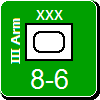Chijohnaok2
Posts: 628
Joined: 7/29/2002
From: Florida, USA (formerly Chicago)
Status: offline

|
quote:
ORIGINAL: barkorn45
try this scenario,a man opens your front door,enters with both hands in the air and declares he's not there to hurt anyone
"I just want that big screen tv i'm not going to hurt you is that tv worth injuring me or killing me.
I'm unarmed and don't pose a threat to you so i'll just help myself and be on my way""Oh by the way you should lock your door!"
scary is'nt it
Laws in the US vary by state, but many states have in place what is referred to as "the castle doctrine".
http://en.wikipedia.org/wiki/Castle_doctrine#State-by-state_positions
quote:
A Castle Doctrine (also known as a Castle Law or a Defense of Habitation Law) is an American legal doctrine that designates a person's abode (or, in some states, any place legally occupied, such as a car or place of work) as a place in which the person has certain protections and immunities and may in certain circumstances use force, up to and including deadly force, to defend against an intruder without becoming liable to prosecution.[1] Typically deadly force is considered justified, and a defense of justifiable homicide applicable, in cases "when the actor reasonably fears imminent peril of death or serious bodily harm to himself or another".[1] The doctrine is not a defined law that can be invoked, but a set of principles which is incorporated in some form in the law of most states.
Florida's (my state of residence) version goes further:
http://www.leg.state.fl.us/Statutes/index.cfm?App_mode=Display_Statute&Search_String=&URL=0700-0799/0776/Sections/0776.013.html
quote:
(1) A person is presumed to have held a reasonable fear of imminent peril of death or great bodily harm to himself or herself or another when using defensive force that is intended or likely to cause death or great bodily harm to another if:
(a) The person against whom the defensive force was used was in the process of unlawfully and forcefully entering, or had unlawfully and forcibly entered, a dwelling, residence, or occupied vehicle, or if that person had removed or was attempting to remove another against that person’s will from the dwelling, residence, or occupied vehicle; and
(b) The person who uses defensive force knew or had reason to believe that an unlawful and forcible entry or unlawful and forcible act was occurring or had occurred.
(2) The presumption set forth in subsection (1) does not apply if:
(a) The person against whom the defensive force is used has the right to be in or is a lawful resident of the dwelling, residence, or vehicle, such as an owner, lessee, or titleholder, and there is not an injunction for protection from domestic violence or a written pretrial supervision order of no contact against that person; or
(b) The person or persons sought to be removed is a child or grandchild, or is otherwise in the lawful custody or under the lawful guardianship of, the person against whom the defensive force is used; or
(c) The person who uses defensive force is engaged in an unlawful activity or is using the dwelling, residence, or occupied vehicle to further an unlawful activity; or
(d) The person against whom the defensive force is used is a law enforcement officer, as defined in s. 943.10(14), who enters or attempts to enter a dwelling, residence, or vehicle in the performance of his or her official duties and the officer identified himself or herself in accordance with any applicable law or the person using force knew or reasonably should have known that the person entering or attempting to enter was a law enforcement officer.
(3) A person who is not engaged in an unlawful activity and who is attacked in any other place where he or she has a right to be has no duty to retreat and has the right to stand his or her ground and meet force with force, including deadly force if he or she reasonably believes it is necessary to do so to prevent death or great bodily harm to himself or herself or another or to prevent the commission of a forcible felony.
(4) A person who unlawfully and by force enters or attempts to enter a person’s dwelling, residence, or occupied vehicle is presumed to be doing so with the intent to commit an unlawful act involving force or violence.
(5) As used in this section, the term:
(a) “Dwelling” means a building or conveyance of any kind, including any attached porch, whether the building or conveyance is temporary or permanent, mobile or immobile, which has a roof over it, including a tent, and is designed to be occupied by people lodging therein at night.
(b) “Residence” means a dwelling in which a person resides either temporarily or permanently or is visiting as an invited guest.
(c) “Vehicle” means a conveyance of any kind, whether or not motorized, which is designed to transport people or property.
History.—s. 1, ch. 2005-27.
The burglar in your example "unlawfully entered the premises" as they did it without permission.
(Granted it was not "forced"; perhaps a loophole for a jury to decide).
If the homeowner steps in front if the TV to prevent its theft, and the burglar pushes (forces) him out of the way with the intent of conducting an unlawful act (stealing he TV ); the the homeowner is probably (IMHO) entitled to use deadly force.
In all likelihood, a homeowner who was tried in this case for shooting the burglar would have the sympathy of the jury and a conviction would be difficult. Many prosecutors would hesitate to try this case as it would garner them a lot of negative publicity. Many/most local prosecutors in the US are elected positions, so bad publicity with the electorate is often a consideration they face when deciding to prosecute or not.
_____________________________
 Feel free to drop by and chat about whatever is on your mind.
|
 Printable Version
Printable Version






















 New Messages
New Messages No New Messages
No New Messages Hot Topic w/ New Messages
Hot Topic w/ New Messages Hot Topic w/o New Messages
Hot Topic w/o New Messages Locked w/ New Messages
Locked w/ New Messages Locked w/o New Messages
Locked w/o New Messages Post New Thread
Post New Thread